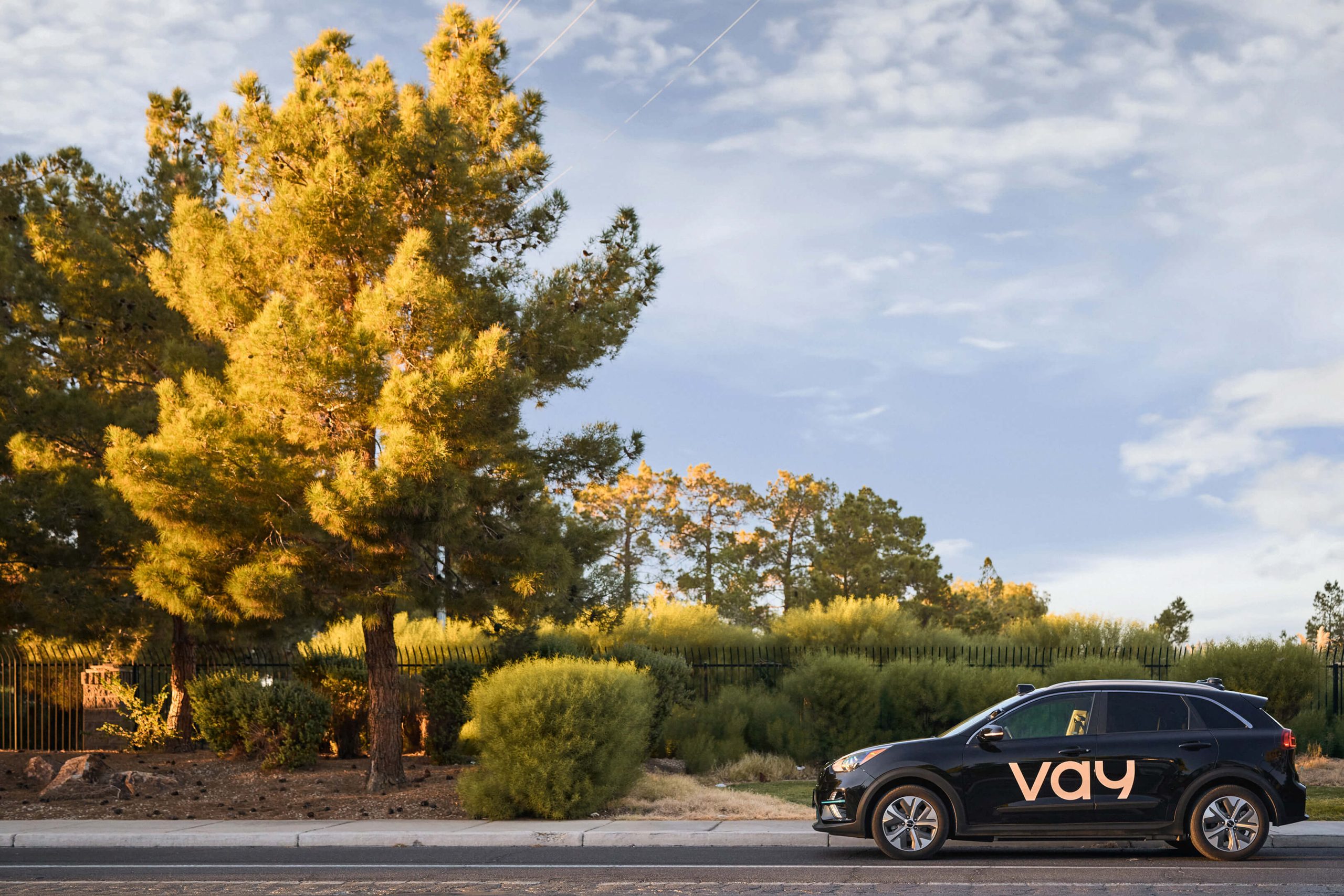
A significant financial commitment from Grab, the prominent Singaporean technology conglomerate, is set to bolster Vay, a German startup specializing in remote-controlled vehicle rentals. The initial cash injection of $60 million, announced recently, signals a strategic partnership that could see Vay secure an additional $350 million as specific operational and market penetration milestones are achieved within the first year. This substantial investment, contingent on regulatory clearances and projected to finalize by year-end, underscores a burgeoning interest in hybrid mobility solutions that blend human oversight with advanced technology.
The Hybrid Horizon of Mobility: Vay’s Unique Proposition
Vay distinguishes itself in the rapidly evolving mobility sector by offering a unique "teledriving" service. Unlike fully autonomous vehicles that operate without human intervention, Vay’s model involves human operators remotely controlling cars to deliver them directly to customers. Once the vehicle arrives, the customer takes the wheel, driving it as they would a conventional rental car. Upon reaching their destination, the customer simply exits the vehicle, and a remote operator handles the retrieval and parking, eliminating the perennial urban hassle of finding a spot. This innovative approach, described by Vay as a hardware-light system, aims to deliver convenience at a cost point significantly below traditional ride-hailing services. Customers gain the flexibility of a private vehicle without the burdens of ownership or parking, provided they hold a valid driving license.
The concept of teleoperation is not entirely new but has gained renewed traction as a pragmatic step towards fully autonomous mobility. Early visions of self-driving cars promised a rapid, widespread deployment that has proven more challenging to achieve due to complex regulatory environments, technological hurdles, and public acceptance issues. Teleoperation acts as a crucial bridge, allowing for operational deployment while still providing a human safety net. This hybrid model mitigates some of the immediate risks associated with Level 4 or Level 5 autonomous driving, making it an attractive interim solution for specific use cases like car rentals and last-mile delivery.
Vay’s Journey: From Regulatory Hurdles to U.S. Expansion
Founded in Berlin, Vay has navigated a complex regulatory landscape in its home country. For a period, the absence of clear legal frameworks for remote driving presented a significant hurdle to commercial deployment in Germany. However, recent legislative developments have provided the necessary clarity, paving the way for future operations. In the meantime, Vay strategically shifted its focus, establishing its first commercial operations in Las Vegas, Nevada, in January 2024. The U.S. market, with its varied state-level regulations and competitive spirit, has offered a fertile ground for testing and scaling new mobility concepts.
The investment from Grab is explicitly earmarked to accelerate Vay’s expansion within the United States. To unlock the subsequent tranches of funding, Vay must meet predetermined objectives related to its operational footprint, including the number of U.S. cities served, the acquisition of necessary regulatory approvals across different jurisdictions, and the achievement of specific consumer revenue targets. This structured funding approach provides a clear roadmap for growth and incentivizes rapid, impactful scaling. The U.S. market is a critical battleground for mobility innovations, with established players like Alphabet-owned Waymo also aggressively expanding their robotaxi services into new cities such as Detroit, Las Vegas, and San Diego. Vay’s remote driving model presents a distinct alternative or complement to these fully autonomous offerings, appealing to a segment of consumers who value the traditional driving experience but seek enhanced convenience.
Grab’s Strategic Play: Expanding a Super-App’s Reach
Grab, headquartered in Singapore, has carved out a formidable presence across Southeast Asia as an "everyday everything app." Its ubiquitous super-app platform integrates a vast array of services, including ride-hailing, taxi services, food and grocery delivery, digital payments, and financial services. Although publicly listed on Nasdaq, Grab does not currently operate in the U.S. market. Therefore, its investment in Vay represents a strategic commitment to supporting technological advancement and market growth in a region where it does not directly compete. This move aligns with Grab’s broader strategy of investing in cutting-edge mobility technologies globally.
Grab’s co-founder and CEO, Anthony Tan, highlighted that Vay’s service caters to a growing demographic of consumers who prefer not to own cars. This aligns perfectly with Grab’s mission to provide comprehensive, accessible, and convenient mobility solutions. Beyond direct service provision, Grab views Vay as a potential source of invaluable data. The driving data collected by Vay’s remote operations and subsequent customer usage could be instrumental in accelerating the training of artificial intelligence models, thereby enhancing the capabilities and safety of autonomous driving systems across the industry. This data-centric approach underscores the long-term, synergistic vision behind Grab’s investment.
This partnership is not Grab’s first foray into the autonomous vehicle space. The company has previously invested in other prominent autonomous driving technology startups, including May Mobility from the U.S. and WeRide from China. These investments reflect Grab’s recognition that the future of urban mobility will likely involve a diverse ecosystem of solutions, ranging from human-driven ride-hailing to fully autonomous robotaxis and hybrid models like Vay’s teledriving. By diversifying its portfolio of mobility investments, Grab positions itself to capitalize on various technological advancements and market shifts, maintaining its competitive edge in the rapidly evolving transportation landscape.
Market Dynamics and the Future of Urban Mobility
The global push towards more sustainable, efficient, and convenient urban transportation systems continues to fuel innovation in the mobility sector. The rise of car-sharing and ride-hailing services has already begun to reshape traditional car ownership models, particularly in dense urban environments where parking is scarce and public transport options are robust. Remote driving, as offered by Vay, represents another evolution in this trend, providing a flexible option that sits between traditional car rental and fully autonomous services.
The market for advanced mobility solutions is characterized by intense competition and significant capital investment. Companies are vying not only for technological supremacy but also for regulatory approval and public trust. The social impact of these technologies is profound, potentially reducing traffic congestion, optimizing parking infrastructure, and offering new employment opportunities for remote operators. However, it also raises questions about job displacement in traditional driving sectors and the ethical implications of autonomous decision-making. Neutral analytical commentary suggests that hybrid models like Vay’s could facilitate a smoother transition towards greater autonomy, allowing societies to gradually adapt to new technologies while addressing safety and regulatory concerns proactively.
Culturally, the idea of not owning a car is becoming increasingly accepted, especially among younger generations and urban dwellers who prioritize flexibility and access over asset ownership. Services that offer mobility-as-a-service, whether through ride-hailing, bike-sharing, or remote-controlled car rentals, tap into this cultural shift. Vay’s model, which provides the sensation of driving one’s own car without the associated burdens, resonates strongly with this evolving consumer preference.
Vay’s Ambitious Vision: Beyond Consumer Rentals
Vay’s ambitions extend beyond merely operating an electric rental car fleet for consumers. The company has already begun exploring and expanding into commercial and business-to-business (B2B) services. A notable development in this direction is its partnership with Kodiak Robotics, a company specializing in self-driving trucks. This collaboration demonstrates Vay’s foresight in applying its remote driving technology to logistics and other industrial applications, where the benefits of teleoperation—such as managing complex maneuvers or last-mile delivery in challenging environments—could be substantial.
Vay CEO Thomas von der Ohe has articulated a long-term vision for the company: to build a "global remote driving platform." This aspiration suggests a future where Vay’s technology could be licensed or integrated into a wide array of vehicles and services, transcending its current rental model. Such a platform could provide the underlying teleoperation infrastructure for various industries, from logistics and construction to public safety and specialized vehicle operations. This broader strategic outlook makes Vay an even more attractive investment target for global tech players like Grab, who are looking to secure stakes in foundational technologies for future markets.
The Race for Dominance: Funding and Future Outlook
Prior to Grab’s investment, Vay had successfully raised $131.8 million from a diverse group of investors, including prominent firms like Kinnevik, Coatue, Eurazeo, Atomico, General Catalyst, Creandum, and the European Investment Bank. The potential full unlock of Grab’s $410 million investment would represent a transformative boost, significantly increasing Vay’s financial firepower and validating its technological approach within the competitive mobility landscape.
The broader market for self-driving and remote-driving technologies is witnessing an intense funding race. For instance, Nvidia recently announced plans to invest $500 million into Wayve, a British self-driving tech startup. These massive investments highlight the perceived potential and the fierce competition among companies striving to innovate and dominate the future of transportation. For Vay, the partnership with Grab provides not just capital but also strategic insight and potential access to Grab’s vast ecosystem and market expertise in Southeast Asia, should synergies be explored in that region. This collaboration is a testament to the ongoing evolution of mobility, where strategic partnerships and innovative hybrid models are paving the way for a more connected and efficient future.








